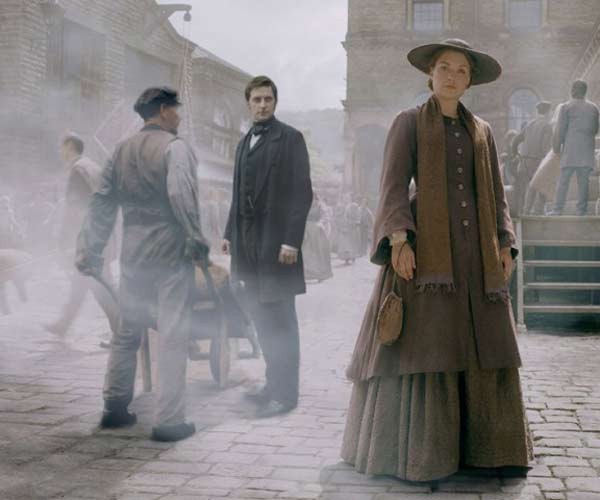Philip Hensher: Recycling titles? It's fine by me

A new novel by Sarah Waters is always going to cause great excitement, and I'm looking forward to her new ghost story immensely. But I was taken aback to find that it is going to be called The Little Stranger: a beautiful and resonant title, certainly, but one that has struck other novelists, too. For me, I have to admit, it still reminds me of the title of a tremendous short novel by Candia McWilliam from 20 years back (A Little Stranger). Research reveals, too, that it has been used by other novelists, including Kate Pullinger and a diligent Scottish writer of romances from a century ago, Annie S Swan. Does it matter?
There is no copyright in titles, of course – you could call your draft novel Captain Corelli's Mandolin without fear of complaint from that direction. And other titles have been replicated more than once. P G Wodehouse said that he leapt out of bed, like Thackeray at a similar moment of inspiration, when he thought of Summer Lightning as a title for his new novel. It was only later that he discovered that there were so many novels called the same that he hoped his would eventually feature in a "Best 100 Books Entitled Summer Lightning" list.
Sometimes, there is no fear of confusion. No one is likely to mistake John Updike's Brazil with the Terry Gilliam film of the same title, nor the Elizabeth Taylor movie A Place in the Sun with the travel- and-real-estate daytime TV series. The other Elizabeth Taylor, the author, wrote a novel called Angel, which is a masterpiece; Katie Price also wrote an Angel, which is definitely not. An embarrassing number of novelists, conceptual album producers, film-makers and others have hit on "The Dark Side of the Sun" as a title. If you want to discover the real limits of human ingenuity, look up "The Kindness of Strangers" as a title on abebooks.com – Tennessee Williams could hardly have known what he was starting with his famous line.
Actually, it seems odd that we should expect books to have distinctive titles. We don't expect novels, after all, to have distinctive plots. Only in the last 200 years have we started to think that titles should be meaningful, rather than descriptive. Some of Shakespeare's plays have a title that seems to make a point – Much Ado About Nothing – but most just point out the main focus of the drama. Many novels were the same until the 19th century, when titles such as Clarissa or Gulliver's Travels were supplanted by subtly suggestive ones such as Vanity Fair, The Return of the Native, or Our Mutual Friend.
In my view, titles should be considered available for recycling. It seems a great shame that North and South, New Grub Street, Vile Bodies or Persuasion should never be used again. Fashions in titles are very marked – there was an exhausting tendency until a couple of years ago for any work of non-fiction to be called something like "Herman's Whale", or "Sherlock's Needle". Now, I see, The Bookseller of Kabul has been followed by something called The Cellist of Sarajevo; if anyone has a book proposal entitled "The Cobbler of Kigali", now might be the moment to send it off.
Frankly, reusing titles seems a more honest, as well as a more ultimately productive procedure. Weak imitations of formulae are one thing, but spotting a good title and reusing it boldly is quite another. If someone felt like writing a new novel called The Awkward Age, I would love to read it.
Why Liz Smith woz robbed
The New Year Honours lists are often amusing since they reward the arts so very unevenly – writers rarely, sopranos with a dutiful regularity, and actors with an unpredictability that can only be called amazing.
Liz Smith, the great comic actor, is universally loved by her audience and, as far as one can tell, greatly admired by her colleagues. At 87, she has been in constant work for decades, and her greatest triumphs – Alan Bennett's A Private Function, or her wonderfully humane turn in The Royle Family – will live forever.
And what does she get for it? A mouldy MBE. Meanwhile, some bloke who rides a bicycle gets a knighthood. Nothing could better demonstrate how far we, in this country, underestimate the arts of the comic – something we're very good at.
I'm sure that Ms Smith is delighted with the recognition that she's been given, but anyone can see that she deserves a damehood.
At this time of year, the papers are filled with sagacious predictions of the giant talents who will have taken over the world, 12 months hence. Experience has shown that the poor young men and women picked on in this way fall into two categories. The first are the children of people already famous – Rebecca Hall, the actress daughter of Peter Hall, seemed to crop up year after year, from puberty onwards, until she actually did something worth noticing. The second is, alas, a group of whom none of us will ever hear again. Old lists of this kind are a poignant reminder of fame that never came, posited on abilities that never existed.
In future years, I see the scene around the family hearth: "Sixty years ago, your grandmother was an Emerging Talent for 2009."
"What happened to her?"
"Oh, she's still Emerging."
Tom Sutcliffe is away

Join our commenting forum
Join thought-provoking conversations, follow other Independent readers and see their replies